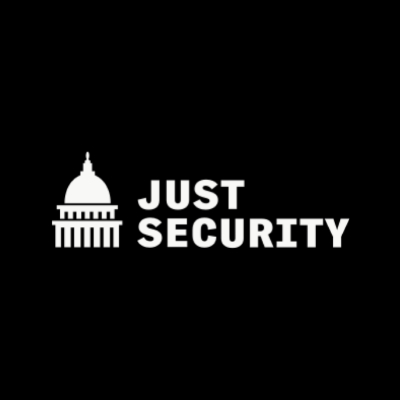Q&A with Eliav Lieblich on Iran-Israel Hostilities
- Bias Rating
22% Somewhat Conservative
- Reliability
25% ReliablePoor
- Policy Leaning
16% Somewhat Conservative
- Politician Portrayal
42% Negative
Extremely
Liberal
Very
Liberal
Moderately
Liberal
Somewhat Liberal
Center
Somewhat Conservative
Moderately
Conservative
Very
Conservative
Extremely
Conservative
-100%
Liberal
100%
Conservative

Continue For Free
Create your free account to see the in-depth bias analytics and more.
Continue
Continue
By creating an account, you agree to our Terms and Privacy Policy, and subscribe to email updates. Already a member: Log inBias Score Analysis
The A.I. bias rating includes policy and politician portrayal leanings based on the author’s tone found in the article using machine learning. Bias scores are on a scale of -100% to 100% with higher negative scores being more liberal and higher positive scores being more conservative, and 0% being neutral.
Sentiments
-24% Negative
- Liberal
- Conservative
| Sentence | Sentiment | Bias |
|---|---|---|
| "First, many states recently have been employing language that is closer to prohibited reprisals than legitimate self-defense - the United States and its allies in strikes against Iranian-backed regional militias; Iran in its strikes in Iraq, Pakistan, and Israel; and Israel in its threat to respond to Iran's April 13 attack." | Positive | 10% Conservative |
| "One key reason for this is the active participation in hostilities of armed non-state actors across at least five states and territories, all having some affiliation with Iran or the IRGC." | Positive | 8% Conservative |
| "So whether Iran has a valid claim of self-defense requires first determining whether the conduct of the involved non-state actors is attributable to Iran, either through overall control (some would posit the higher threshold of effective control) or substantial involvement in their actions." | Positive | 6% Conservative |
| "The accepted standard is that once an international armed conflict begins - when a state resorts to force against another - the armed conflict legally continues until the general close of military operations." | Positive | 6% Conservative |
| "If we accept that preemptive self-defense against an imminent attack might be lawful even before an attack takes place (as per the Caroline doctrine), the same logic applies a fortiori after a pattern of attacks - which essentially serves as strong evidence for the imminent threat of further attacks." | Positive | 4% Conservative |
| "The relationship between Iran and these actors is crafted to leave space for plausible deniability regarding state responsibility for specific actions." | Negative | -2% Liberal |
| "But again, whether Iran's operations have indeed been concluded reverts to the question of how we understand the involvement of Iran in ongoing operations by non-state actors in the region." | Negative | -4% Liberal |
| "This does not mean that International Human Rights Law (IHRL) ceases to apply alongside IHL, which might establish another level of state responsibility." | Negative | -12% Liberal |
| "In its Article 51 letter to the Security Council, Iran stated its April 13 attacks on Israel were taken in the exercise of Iran's inherent right to self-defence as outlined in Article 51 of the Charter of the United Nations, and in response to the Israeli recurring military aggressions, particularly its armed attack on 1 April 2024 against Iranian diplomatic premises." | Negative | -22% Liberal |
| "The United States, Arab countries, and the UN Secretary General are trying to de-escalate the situation and restrain the parties from further hostilities, with U.S. President Joe Biden imploring Israeli Prime Minister Benjamin Netanyahu in a leader to leader call to slow things down." | Negative | -14% Liberal |
| "The Biden administration has said it will not support an Israeli counterattack on Iran and nor would others like the Saudis who helped defend against the April 13 attack." | Negative | -28% Liberal |
Extremely
Liberal
Very
Liberal
Moderately
Liberal
Somewhat Liberal
Center
Somewhat Conservative
Moderately
Conservative
Very
Conservative
Extremely
Conservative
-100%
Liberal
100%
Conservative

Contributing sentiments towards policy:
55% : First, many states recently have been employing language that is closer to prohibited reprisals than legitimate self-defense - the United States and its allies in strikes against Iranian-backed regional militias; Iran in its strikes in Iraq, Pakistan, and Israel; and Israel in its threat to respond to Iran's April 13 attack.54% : One key reason for this is the active participation in hostilities of armed non-state actors across at least five states and territories, all having some affiliation with Iran or the IRGC.
53% : So whether Iran has a valid claim of self-defense requires first determining whether the conduct of the involved non-state actors is attributable to Iran, either through overall control (some would posit the higher threshold of "effective control") or substantial involvement in their actions.
53% : The accepted standard is that once an international armed conflict begins - when a state resorts to force against another - the armed conflict legally continues until the general close of military operations.
52% : If we accept that preemptive self-defense against an imminent attack might be lawful even before an attack takes place (as per the Caroline doctrine), the same logic applies a fortiori after a pattern of attacks - which essentially serves as strong evidence for the imminent threat of further attacks.
49% : The relationship between Iran and these actors is crafted to leave space for plausible deniability regarding state responsibility for specific actions.
48% : But again, whether Iran's operations have indeed been "concluded" reverts to the question of how we understand the involvement of Iran in ongoing operations by non-state actors in the region.
44% : This does not mean that International Human Rights Law (IHRL) ceases to apply alongside IHL, which might establish another level of state responsibility.
39% : In its Article 51 letter to the Security Council, Iran stated its April 13 attacks on Israel were taken "in the exercise of Iran's inherent right to self-defence as outlined in Article 51 of the Charter of the United Nations, and in response to the Israeli recurring military aggressions, particularly its armed attack on 1 April 2024 against Iranian diplomatic premises."
*Our bias meter rating uses data science including sentiment analysis, machine learning and our proprietary algorithm for determining biases in news articles. Bias scores are on a scale of -100% to 100% with higher negative scores being more liberal and higher positive scores being more conservative, and 0% being neutral. The rating is an independent analysis and is not affiliated nor sponsored by the news source or any other organization.



























 Just Security Article Rating
Just Security Article Rating